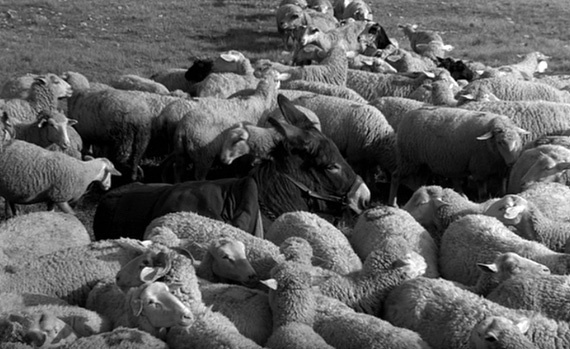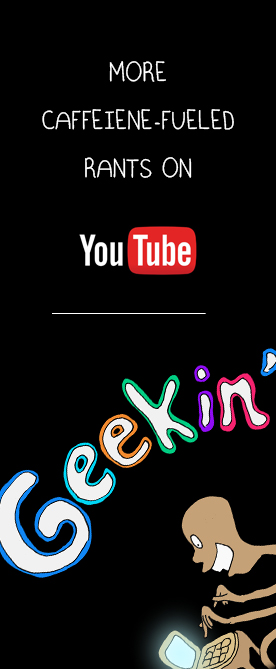By Mikhail Karadimov December 14th, 2016
I decided to hold a debate with myself over the ending of French director Robert Bresson’s lauded-to-death Au Hasard Balthazar.
This isn’t an appraisal of the film’s worth. I don’t think you need me or anyone else to tell you that Au Hasard Balthazar is widely considered—by film critics the world over—to be one of cinema’s greatest achievements—along with other potentially eye-rolling “films”—depending on your threshold for pretentiousness—like The Seventh Seal or Bicycle Thieves.
But, in case you’re wondering, yes, I do adore Bresson’s film.
Now, to the ending.
At first, while watching Balthazar the donkey wandering around, bleeding, looking for a place to die, and settling for a wide open field buzzing with the bray and ring of a nearby flock of sheep, I thought to myself: Bresson’s overstayed his welcome. As soon as Balthazar fell to his knees and the sheep gathered around him as if he were a fallen saint, the outside world still humming along despite this saint’s nearing end, I was hoping, crossing my fingers, that Bresson would CUT TO: BLACK and leave us with nothing but the distant, muffled sounds of a world ensconced in the wooly white clouds of sheep’s fur. I was hoping, like a ghost, the visual would disappear, but the sound, the spirit of the thing would linger behind.
At first, I truly thought this a more potent and resounding ending and that Bresson really missed out on a potentially rewarding climax, but also, ultimately, a more hopeful ending. I was hoping that: when it comes down to it, if you work hard enough and toil hard enough then eventually your due will come to you, and you will one day be carried by soft-sheered angels to the billowy summits of heaven.
On further inspection, I doubt it ever was Bresson’s intention to reward us with hope and optimism. Instead of staying put and flanking Balthazar with warmth and community, the sheep quickly lose interest in this great, heaving beast and start to inch out of frame. This beatific donkey, despite his eternal patience, is left without greatness or glory; he’s left with himself and his slowly failing body, and that is it.
As people—as cultured and civilized beings burdened by consciousness—we fool ourselves on a daily basis that there is some great construct to every move we make. We refuse to admit to ourselves the fleeting and uncaring nature of the world, especially if we’re lucky enough to find ourselves living relatively stable lives. Bresson’s ending posits a philosophy that shatters this preoccupation with posterity and self-importance, restoring to us the truth of the universe: none of this matters, none of our work matters, because nothing remains as is; it all changes and moves on and forgets, as the sheep do, as Marie does, as everyone in the film does.
Marie’s mother cries for Balthazar, she invokes his presence on earth as saintly. But is he? He’s here to be what he is, a donkey, and we’re here to be what we are, capricious human beings. But to be saintly means to be divine, and I don’t believe it’s God who touched the donkey’s soul and taught him great endurance, we did. We whipped him, we beat him, we chained him in pounds and pounds of harnesses and wheelbarrows. We conditioned him to a life of slavery and sainthood. And if we—the furthest thing from sainthood—taught him the tenants of a servant’s life, can he really be a saint? Or is that, too, just a sick joke. We break him, then we call him a saint. Just like the story of Job. God wishes to prove just how saintly man is. How? By breaking him, by testing the full sweep of an animal’s tolerance for hopelessness.
We fear the lonely death, the isolated death, for no one to be around to witness our end. But, as I look around the world today, at countries like Syria or the Phillipines, I can’t help but think of Au Hasard Balthazar’s final scene. We crowd around at first, interested, curious, horrified that the world could behave so indiscriminately, so maliciously toward a group of people, but then, once sated, once the horror either becomes too much or too dull in its repetition, we slowly inch away, forgetting.






